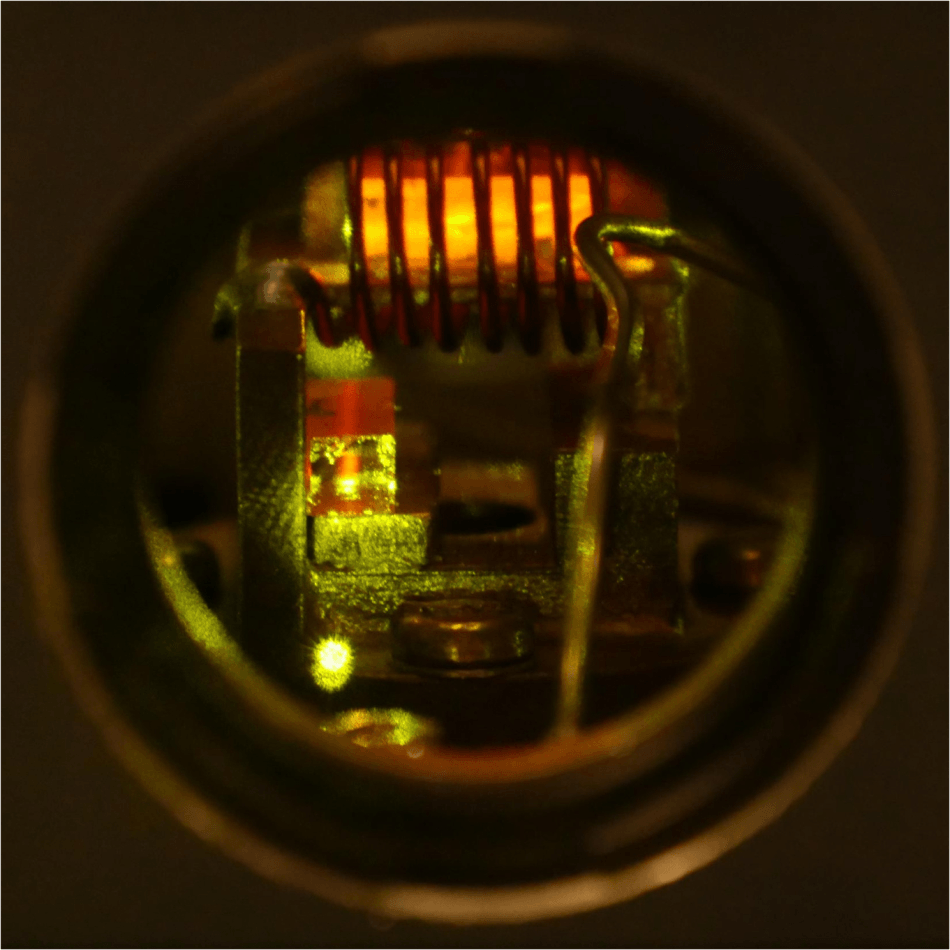May 30 2017
 The quantum repeater: two crystals in operation. © UNIGE
The quantum repeater: two crystals in operation. © UNIGE
Quantum physics ensures that a message has not been intercepted before reaching its destination. This is possible because of the laws of quantum physics, which highlights that a particle of light, such as a photon, can simultaneously be in two distinct states, comparable to a coin that is tossed in air, which is practically both tail and head before reaching the ground.
This superposition of states is destroyed as soon as it is read similar to the manner in which the coin is grabbed. This unusual feature allows one to identify an evil eavesdropper when sending a message. Till date, this technique has however been limited to short distances. Researchers from the University of Geneva (UNIGE), Switzerland, extended the reach of these quantum communications by demonstrating a novel protocol based on a crystal capable of emitting light and also storing it for arbitrary long times. This research makes room for a future quantum repeater and will be published in Physical Review Letters.
Quantum superposition is considered to be one of the fascinating features of quantum physics.
In order to test the security of communication link, we can use particles of light, photons, onto which we encode quantum bits (analogous to the bit used in computing). We then take advantage of the properties of quantum superposition, allowing the photon to be simultaneously in two states, to test the security of a communication link.
Cyril Laplane, Researcher, Group of Applied Physics, UNIGE
The superposition of states is lost and only one of the two states remains if the photon is intercepted and read. This allows the recipient to know if the message has been intercepted.
The need for quantum repeaters
Since this protocol depends on the use of single photons, there is an unavoidable chance of losing the particles when they propagate in standard communication links such as the optical fiber. This issue becomes a lot more critical with the distance. Repeaters, used for amplifying and rebroadcasting the signal, will be needed to communicate over long distances. However, using such a procedure in quantum communication is impossible without destroying the superposition of states. Physicists will have to build a quantum repeater capable of storing the dual character of the photon and also develop such a state, which indeed is a true challenge.
A crystal based solution
Scientists have investigated a lot atomic gases, which generally need heavy experimental apparatus, in order to build a quantum repeater. “We are using a crystal capable of storing quantum state of light. It possesses the advantage of being relatively simple to use with potential for very long storage times”, clarifies Jean Etesse, a co-author of the paper. These crystals are capable of absorbing light and restoring it later, without reading the information encoded on it. Additionally, they can produce single photons and even store them on demand. Their potential for miniaturization is another significant asset.
The crystal simplifies the protocol for quantum repeaters and places the groundwork of a quantum internet as it is considered to be the source and memory for quantum information. Physicists at UNIGE have already started to work on the development of an elementary link of quantum communication using a repeater.